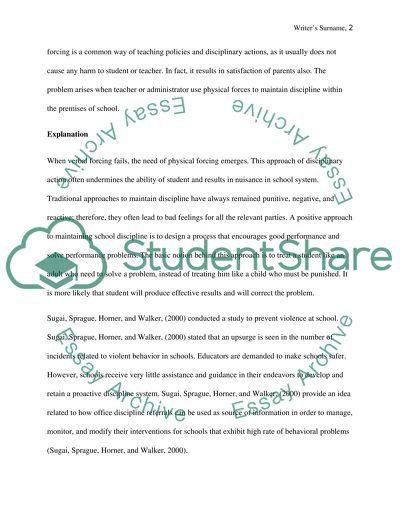Cite this document
(“Extent of Force for Maintaining School Discipline Research Paper”, n.d.)
Retrieved from https://studentshare.org/education/1495839-extent-of-force-for-maintaining-school-discipline
Retrieved from https://studentshare.org/education/1495839-extent-of-force-for-maintaining-school-discipline
(Extent of Force for Maintaining School Discipline Research Paper)
https://studentshare.org/education/1495839-extent-of-force-for-maintaining-school-discipline.
https://studentshare.org/education/1495839-extent-of-force-for-maintaining-school-discipline.
“Extent of Force for Maintaining School Discipline Research Paper”, n.d. https://studentshare.org/education/1495839-extent-of-force-for-maintaining-school-discipline.


